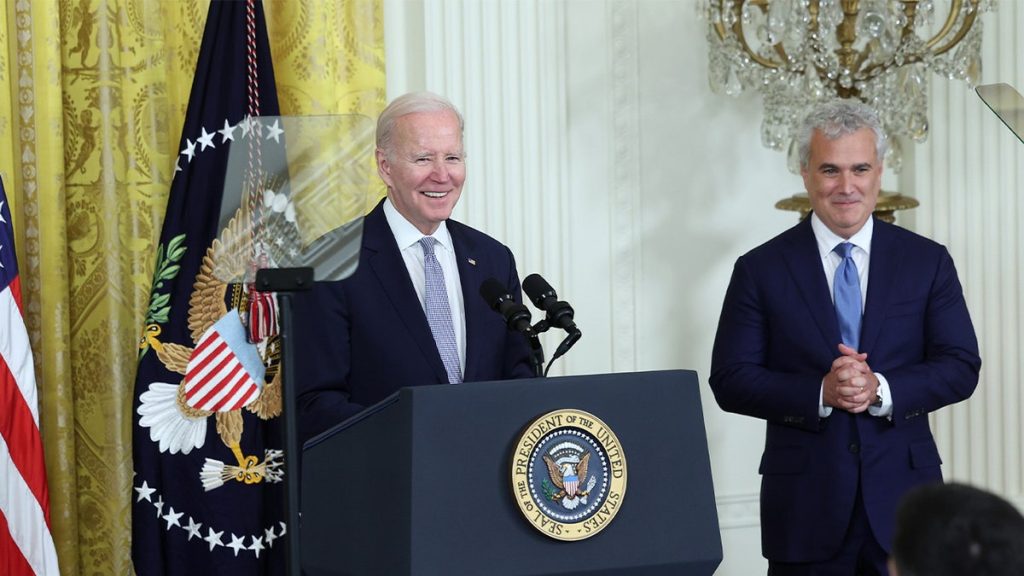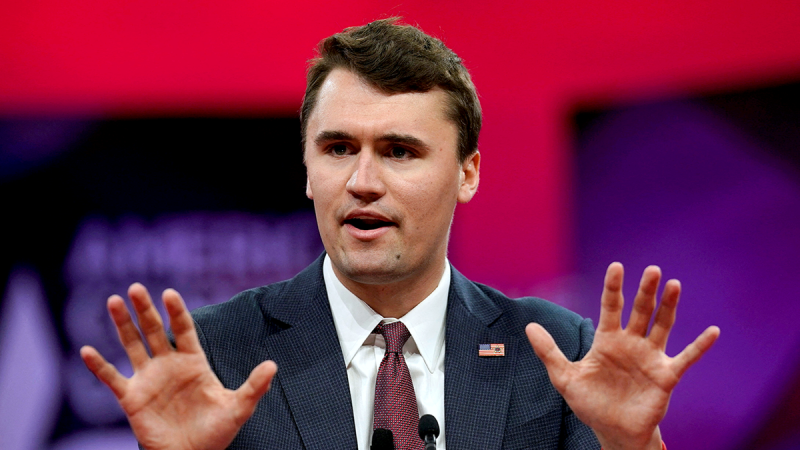Biden’s ex-chief of staff arrives for House Oversight grilling as mental acuity probe nears end

Former White House chief of staff Jeff Zients is on Capitol Hill Thursday as the House Oversight Committee’s probe into former President Joe Biden’s mental acuity draws to a close.
He said nothing to reporters on his way into his closed-door voluntary interview, though the ex-Biden aide did shake hands with House Oversight Committee Chairman James Comer, R-Ky., on his way into the room.
The sit-down is expected to last from about 10 a.m. into the afternoon.
Zients is the last former Biden official expected to be interviewed by the committee, which is also looking into whether the then-president was fully aware of clemency orders and other executive actions signed by autopen during the latter half of his term.
Comer told reporters ahead of the interview that Zients is ‘one of the most, if not the most important, witnesses in our investigation.’
‘Zients was the one who authorized the use of the autopen, especially down the stretch in the last lame duck period of the Biden administration,’ Comer said. ‘We’ve had a lot of witnesses come in that were supposedly in Biden’s inner circle that were shielded from President Biden, especially in the last six months of his administration. So we believe Zients is the guy that was potentially making a lot of decisions down the stretch.’
Zients’ recollection will be of particular interest to House investigators, given his senior role in the Biden White House for most of those final two years in office.
Before that, he served as counselor to the president and White House COVID-19 response coordinator from Biden’s swearing-in in January 2021 until April 2022.
Perhaps most critical to the committee is Zients’ reported key role in the chain of command for Biden’s autopen pardons.
It’s not uncommon for presidents to use an autopen to sign documents, and it has been used by leaders on both sides of the aisle.
However, Comer is questioning whether Biden was really handing down those decisions, given public concerns about his mental and physical acuity that arose toward the end of his term.
The New York Times reported that Zients would have been among the top aides relaying Biden’s clemency decisions to assistants, who then drafted those orders before they were circulated back to Biden’s senior officials and then later given final approval.
In that same report, Biden said he made every clemency decision on his own.
Axios reported earlier this month that Zients signed off on pardons granted to five of Biden’s family members less than 24 hours before he left office.
The former president’s allies have pushed back on the Republican-led House Oversight probe, however, denouncing the investigation as politically motivated.
‘You managed a White House in disarray after public reporting began to focus on the apparent decline of President Biden’s mental capabilities. You reportedly called an all-staff call in July 2024 ‘in which [you] urged President Biden’s team to unite and move forward from Biden’s terrible debate performance[.],’’ Comer wrote in a June letter to Zients.
‘The scope of your responsibilities — both official and otherwise — and personal interactions within the Oval Office cannot go without investigation. If White House staff carried out a strategy lasting months or even years to hide the chief executive’s condition — or to perform his duties — Congress may need to consider a legislative response.’







